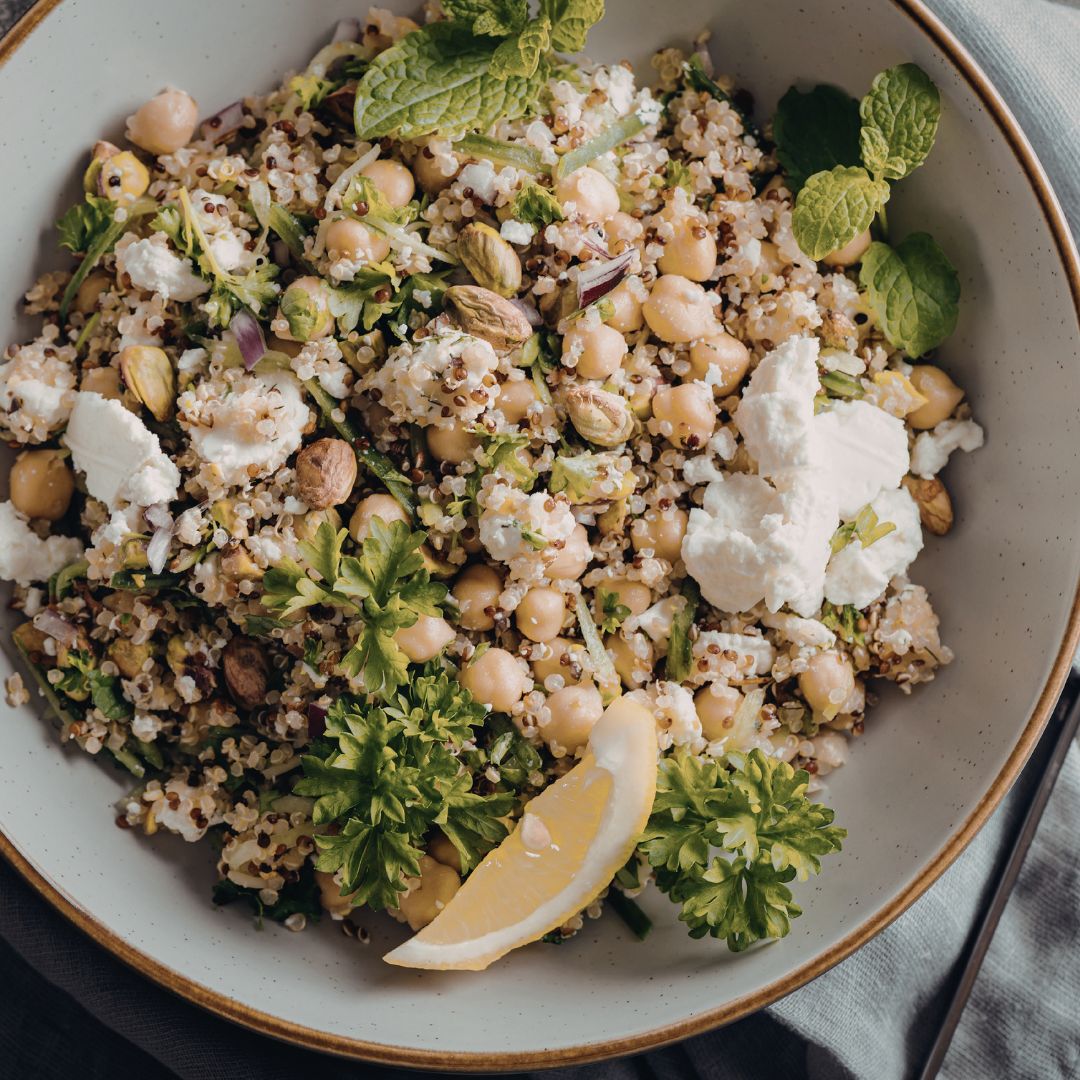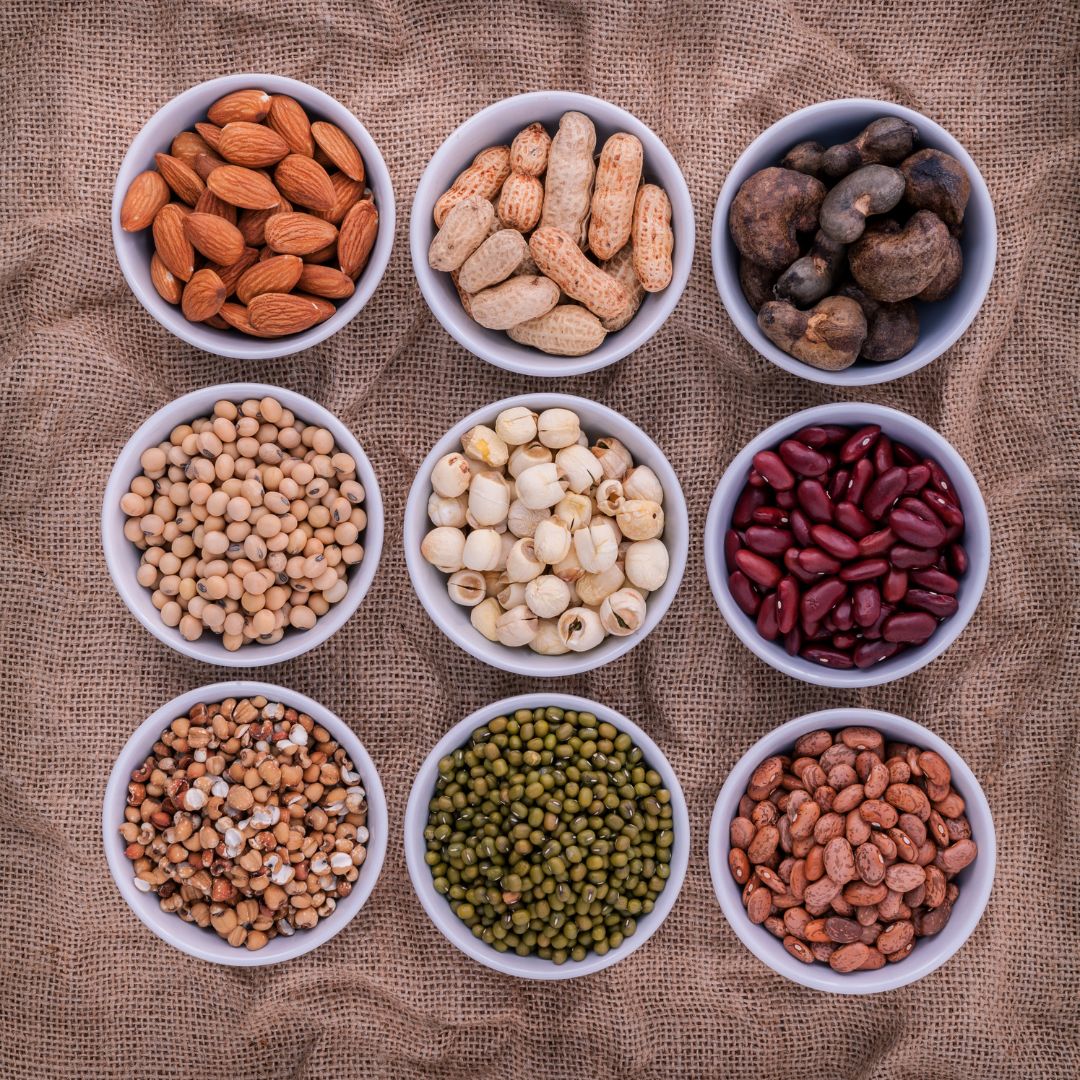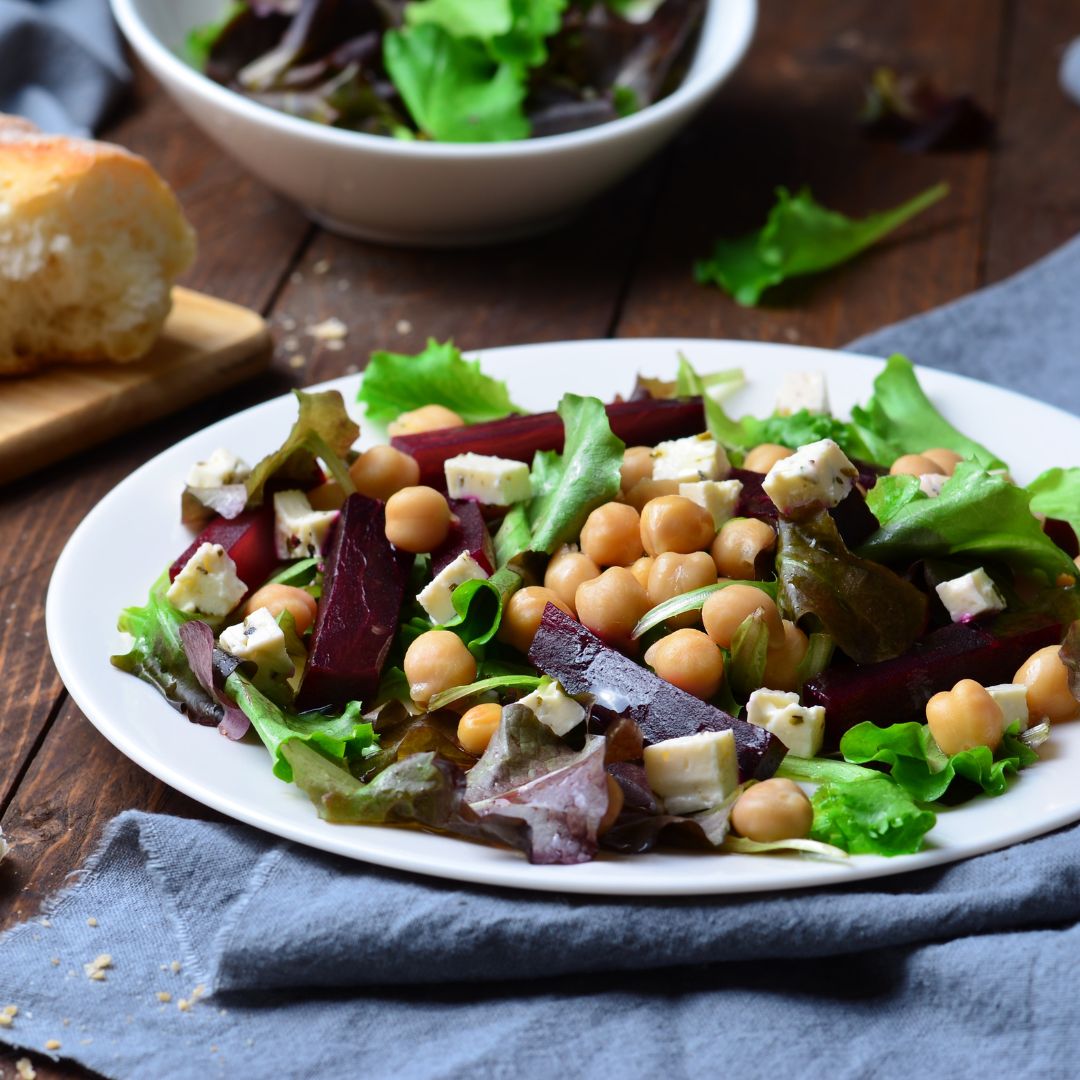
Low Energy in PCOS? Start With Hydration
Hydration is one of the basic foundations of health, yet in PCOS it is rarely given the attention it deserves. Conversations more often centre around carbs, supplements, weight, or lab results. Water is reduced to a passing comment. Drink more. Stay hydrated. Aim for two litres.
In practice, however, fluid balance is not a background detail. It is part of the physiological environment in which hormones are produced, transported, signalled and cleared. When hydration is inconsistent, the effects are rarely dramatic enough to trigger medical concern, but they are often significant enough to influence daily symptoms such as fatigue, cravings, headaches, bloating and low mood.
For women already navigating the metabolic and hormonal complexity of PCOS, these small physiological stresses can accumulate. Understanding hydration as part of the wider gut–hormone conversation helps move it from generic lifestyle advice into something clinically meaningful and genuinely supportive.
The Link Between Hydration and Hormone Signalling
Hormones travel through the bloodstream to reach their target tissues. This process depends on stable blood volume, balanced electrolytes and effective cellular communication, all of which are influenced by hydration status. Even mild dehydration can subtly alter cardiovascular function, thermoregulation and cognitive performance.
In PCOS, where insulin signalling and appetite regulation are often already under pressure, these subtle shifts may be felt more clearly. Research shows that hydration status can influence blood sugar regulation, perceived energy, mood and concentration. Hydration is not a cure or a treatment for hormonal imbalance, but inadequate intake may add an additional burden to systems that are already working harder.
Our digestive system provides another important connection. Adequate fluid intake supports good production of digestive juices, how well our gut moves, and stool formation. These processes shape the gut environment that interacts with inflammation, microbial balance and hormone metabolism, themes explored in our discussion of the gut–hormone axis in PCOS.
When hydration is low, constipation and bloating are more likely to occur. In turn, discomfort may reduce appetite for fibre-rich foods, gradually influencing microbiome diversity and digestive resilience. This illustrates how hydration, gut health and hormonal regulation rarely operate in isolation. They are overlapping pieces of the same physiological picture.
Dehydration, Fatigue and Cravings
One of the most useful things to consider regarding hydration in PCOS is energy regulation. Mild dehydration commonly shows up as tiredness, headaches, dizziness or reduced concentration. These sensations are easily interpreted as hunger, particularly in the mid-afternoon when energy naturally dips.
For women managing insulin resistance, this misinterpretation matters. Responding to dehydration-related fatigue with quick carbs can reinforce the cycle of blood glucose spikes and crashes that many of us are trying to stabilise. Something as simple as improving fluid intake earlier in the day can therefore support steadier energy and clearer appetite signals, even without changing overall food intake.
There is also a neurological component. Thirst and hunger signals arise from closely related regions in the brain, which helps explain why they are so easily confused. Chronic under-hydration can therefore shape eating patterns in subtle but meaningful ways, contributing to grazing, sugar cravings or the sense of never quite feeling satisfied after meals.
Behaviour and routine play a significant role here. Busy work environments, long clinic shifts, caring responsibilities, commuting and high caffeine intake all make regular hydration more difficult than guidelines suggest. Many women realise late in the day that they haven’t drunk much water. Addressing hydration in PCOS is therefore less about strict targets and more about creating consistent daily habits.
Practical Hydration Strategies for PCOS
Hydration does not need to be complicated to be effective. In fact, the most helpful strategies are usually the simplest and most consistent.
Beginning the day with a glass of water helps restore hydration after overnight fasting and may gently stimulate digestion. Keeping water visible on a desk can subtly increase intake without conscious effort.
For those who struggle with plain water, small sensory changes often help. Lemon, cucumber, mint or herbal infusions can make fluids more appealing without relying on sugary drinks. Warm drinks can feel easier to tolerate for those with sensitive digestion, while cooler fluids may feel more refreshing during exercise or warmer weather.
Electrolyte balance is another quiet but relevant factor. Women who exercise regularly, sweat heavily, consume a lot of caffeine or experience frequent loose stools may benefit from paying attention to mineral intake alongside fluids. This does not usually require specialist products. Regular inclusion of vegetables, leafy greens, seeds and balanced meals often provides meaningful support.
Importantly, hydration should feel calm rather than pressured. Very high fluid intake is not necessary for most people and can occasionally feel uncomfortable or disruptive. Listening to thirst, observing urine colour and noticing energy levels often provide more realistic guidance than rigid rules.
A Small Habit With Wide Effects
Hydration will never be the most dramatic part of PCOS care, but it can be one of the most quietly influential. When fluid intake becomes more consistent, women frequently report steadier energy, fewer headaches, improved digestion and clearer appetite cues. These changes may appear modest, yet they create a more stable internal environment in which broader nutrition and lifestyle strategies can work more effectively.
Alongside balanced eating patterns, adequate fibre intake and support for gut health, hydration forms part of the everyday physiology that underpins hormonal wellbeing. You can explore these wider foundations in our article on balanced eating for PCOS, where the focus shifts from isolated nutrients to sustainable daily patterns.
Sometimes the most meaningful shifts in PCOS do not begin with complex interventions, but with simple habits repeated consistently. Hydration is one of those habits. Easy to overlook, yet powerful when supported.
This article is for educational purposes only and is not intended to diagnose or treat medical conditions. Nutritional therapy does not replace medical care. If you experience persistent fatigue, excessive thirst, dizziness or other concerning symptoms, please consult your GP or qualified healthcare professional.

Spring Gut Glow Salad
A simple, gut-supportive spring meal for PCOS
When conversations about gut health and PCOS become overwhelming, returning to food in its simplest form can be surprisingly powerful. Many women are told to increase fibre, add prebiotics, or follow complex gut protocols, yet practical guidance on what this looks like in everyday meals is often missing.
For women who experience bloating or IBS-type symptoms, fibre-rich meals can sometimes feel intimidating. Gradual exposure, thoughtful ingredient choices, and balanced meal structure often make a significant difference to tolerance.
Serves 3
Ingredients
Dressing
Method
If you’re prone to bloating, IBS-type symptoms, or feel nervous about fibre-rich foods:
Storage & meal prep

What No One Explains About Fibre and PCOS
Fibre is one of the most frequently recommended nutrients in PCOS, yet it is also one of the most misunderstood. Many women are told to “eat more fibre” without clear guidance on how much, what type, or how to increase intake without triggering bloating or discomfort. For those already experiencing IBS-type symptoms, this advice can feel frustrating rather than helpful.
From a clinical perspective, fibre is not simply about bowel regularity. It plays a central role in gut microbiome balance, insulin sensitivity, inflammation and hormone metabolism. These are all core features of PCOS. When fibre intake is too low, it becomes more difficult to support stable blood glucose levels, beneficial gut bacteria and efficient hormone clearance. When fibre is increased too quickly or in the wrong form, digestive symptoms may worsen. The key is a gradual, personalised and physiologically informed approach.
Why Fibre Matters in PCOS
Most adults in the UK consume significantly less fibre than they should. National dietary surveys consistently show average intakes well below the 30g per day advised. This gap is particularly relevant in PCOS, where metabolic regulation and inflammation are already under strain.
Fibre influences PCOS for several reasons. One of the most important is its effect on blood glucose regulation. Soluble fibres slow gastric emptying and carbohydrate absorption, leading to a steadier rise in blood glucose and insulin after meals. Because insulin resistance is common in PCOS, this stabilising effect is clinically meaningful rather than theoretical.
Fibre also acts as the primary fuel source for beneficial gut bacteria. When microbes ferment fermentable fibres, they produce special chemicals called short-chain fatty acids such as butyrate, propionate and acetate. These compounds support the gut lining, influence immune activity and improve insulin sensitivity. Emerging research in PCOS highlights altered microbial composition and reduced diversity in the gut of many women with the condition, alongside links to both inflammation and metabolic dysfunction. Supporting fibre intake is therefore an easy way to influence the gut–hormone axis discussed in our previous article on how gut health can influence PCOS symptoms.
Hormone metabolism provides another important connection. Certain fibres can bind to oestrogen metabolites in the digestive tract and support their clearance, helping maintain balanced circulation of hormones. While PCOS is primarily associated with elevated androgens rather than excess oestrogen, hormone systems remain closely interconnected. Nutritional strategies that support liver and gut clearance pathways may therefore contribute to overall hormonal balance.
Beyond physiology, fibre intake also affects satiety and appetite regulation. Meals that contain adequate fibre alongside protein and healthy fats tend to promote fullness for longer and reduce rapid energy dips. Clinically, this can help with cravings, evening overeating and inconsistent energy patterns that many women with PCOS describe.
Gentle Ways to Increase Fibre Without Worsening Symptoms
Although fibre is beneficial, the way it is introduced matters a lot, particularly for those with bloating or IBS-type symptoms. A sudden jump from a low-fibre diet to high intakes of bran cereals, large salads or multiple fibre supplements often leads to discomfort, bloating or really bad wind. This does not mean fibre is not suitable - it usually means the pace or type needs adjusting.
A gentler strategy begins with soluble, well-tolerated fibres. Foods such as oats, chia seeds, ground flaxseed, cooked root vegetables, berries and lentils that are properly soaked or prepared tend to be easier on digestion than large amounts of raw vegetables or coarse wheat bran. Cooking, soaking and blending can all improve tolerance by partially breaking down plant cell walls.
Portion size is equally important. Increasing fibre by a small amount every few days allows the gut microbiome time to adapt. This gradual approach is supported by research showing that microbial fermentation patterns shift over time in response to dietary change. In practice, this might mean adding one tablespoon of seeds to breakfast, including an extra serving of vegetables at one meal, or swapping refined grains for higher-fibre alternatives rather than changing everything at once.
Hydration is another often overlooked factor. Fibre absorbs water as it moves through the digestive tract. Without adequate fluid intake, increasing fibre may worsen constipation or bloating rather than relieve it. Supporting hydration throughout the day helps fibre perform its intended function and also contributes to appetite regulation and metabolic stability.
For some women with significant IBS symptoms, personalised guidance is particularly valuable. Conditions such as visceral hypersensitivity (where you have a lot of gut pain), altered gut motility or previous restrictive diets can all influence fibre tolerance. In these situations, a structured and supportive approach is more effective than generic advice to simply “eat more plants”.
Bringing Fibre into Everyday PCOS Eating
One of the most helpful ways to think about fibre is not as an isolated nutrient but as part of an overall meal structure. Balanced meals that include protein, colour from plant foods, healthy fats and slow-release carbs naturally provide fibre without requiring a lot of tricky tracking. Over time, this pattern supports the microbiome, stabilises energy and aligns with long-term PCOS management rather than short-term dietary rules.
Consistency matters more than perfection. Small daily increases in fibre-rich whole foods are more beneficial than occasional very high-fibre days followed by restriction. This steady approach is also more realistic within busy routines and family life, making it easier to sustain.
If you would like practical inspiration, you can explore our collection of PCOS-friendly recipes designed to support balanced blood sugar and digestive health. For a deeper understanding of the connection between digestion and hormones, you may also find it helpful to read our recent article explaining the gut–hormone axis in PCOS. Or feel free to book in a call to discuss further.
This article is for educational purposes only and is not intended to diagnose or treat medical conditions. Nutritional therapy does not replace medical care. If you have persistent digestive symptoms or concerns about your health, please consult your GP or qualified healthcare professional.

Why Gut Health Matters in PCOS
If you are already dealing with PCOS and then you feel as if your digestion has become a second diagnosis, you are not imagining the link. Bloating, abdominal discomfort, constipation, diarrhoea, reflux and a sense that your gut is “reacting to everything” are common reasons our PCOS clients ask us for support. And research backs this up - a 2023 systematic review and meta-analysis found that women with PCOS had more than double the odds of IBS compared with controls.
What is often missed in day-to-day healthcare is that gut symptoms are not just a quality-of-life issue. Digestive function impacts our hormone balance, can significantly affect inflammation, and it can mess with our metabolic health that influence how PCOS shows up in the body. This is the gut–hormone axis in action.
Remember: the gut is not just where food is processed. It is also where signalling molecules are made, where immune activity is regulated, and where hormone metabolism is influenced. That makes gut health especially relevant to PCOS, even if your main symptoms are acne, irregular cycles, unexplained weight gain, cravings or mood rather than gut symptoms.
Alongside this, a growing body of microbiome research suggests that women with PCOS often have measurable differences in gut microbial patterns compared with women without PCOS. A 2025 systematic review analysing human and animal studies reported that, across human studies assessing diversity, around two-thirds reported reduced gut microbial diversity in PCOS. What that means is we have far fewer types of bacteria in our guts – and this can have a knock-on effect on our health. A further study also supported consistent differences in gut microbiota patterns in PCOS across different population types, reinforcing that this is not limited to one country, diet pattern or body size.
Microbiome research is still evolving, and it is not yet at the stage where we can run one stool test and “solve” PCOS. But the direction is clear enough to matter clinically: gut health is part of the hormonal picture.
How the Gut Communicates with Hormones
The gut communicates with the rest of the body through multiple overlapping pathways, and PCOS touches many of them at once. Three are particularly important in clinical practice: inflammation, insulin signalling, and gut-derived metabolites (that’s chemicals made by the bugs in our gut).
It is good to note that the gut is one of the largest surface areas open to the world (remember it’s open at both ends…), and that means our immune system has to keep watch over its comings and goings. This means around 70-80% of immune system resides in our gut, acting a bit like border patrol. When the intestinal barrier is under strain, or when microbial balance shifts (often referred to as dysbiosis), inflammatory signalling can increase. Low-grade inflammation is a recognised feature in many women with PCOS, and it can increase patterns of insulin resistance and ovarian androgen production. The clinical pattern is familiar: worsening bloating and bowel changes alongside flares in fatigue, cravings, skin breakouts, or cycle disruption.
Second, the gut plays a direct role in metabolic regulation. This matters because insulin resistance is common in PCOS, even in women who are not in larger bodies. The microbiome influences glucose regulation through its effects on energy harvest, gut permeability, inflammatory tone and signalling molecules. Recent research looks at the intersection between hyperandrogenism (high levels of ‘male’ hormones), metabolic dysfunction (blood sugar imbalances), and gut dysbiosis, including evidence from both human and animal models.
Finally, our gut microbes are little biochemical factories. When we eat dietary fibre, our gut bacteria ferment them into special chemicals called short-chain fatty acids (SCFAs), including acetate, propionate and butyrate. These compounds feed the gut lining. And they also act as signalling molecules, influencing how sensitive we are to insulin, regulating our appetite, helping with gut motility (constipation anyone?), and organising immune function. SCFAs have been repeatedly highlighted in recent PCOS literature as one of the plausible links between diet, microbes and metabolic-hormonal outcomes.
This is one reason fibre recommendations can feel confusing in PCOS. Fibre is not simply about having “regular bowels”. The type, dose and tolerance matter, and for some women with IBS symptoms, a sudden fibre increase can actually worsen bloating to begin with. A more sensible approach is to build slowly and strategically rather than aiming for perfection overnight.
The Microbiome, Oestrogen and Androgens
Hormones are not only made and used. They are also processed, transformed and cleared. The gut microbiome plays an active role in this, particularly through enzymes that affect ‘enterohepatic recycling’, where the body clears or doesn’t clear used chemicals, like hormones.
A key concept here is the oestrobolome, which refers to the bugs in our gut which are involved in oestrogen metabolism. Ideally our body cleverly packages oestrogen (and other hormones) into bile for excretion via our stool. If our gut has a lot of microbes that produce an enzyme called betaglucuronidase, that can then un-package those hormones, influencing whether they are excreted or reabsorbed. This can mean that the gut bacteria are causing us to have more active hormones in circulation than we want – adding to our hormone imbalance and symptoms.
PCOS is not classically defined by “high oestrogen” in the way some people online suggest. However, oestrogen metabolism still matters because hormonal systems are interlinked. The ovaries, liver, gut and adipose tissue are in constant conversation. When gut function is compromised, it can add friction into that system, particularly around inflammatory signalling and metabolic control.
Androgens are central in PCOS, and the relationship between androgens and the microbiome appears to be bidirectional. Research shows that hyperandrogenism (or high levels of ‘male’ hormones) is associated with gut microbial changes, and animal studies suggest that transferring microbiota from female mice with PCOS can induce PCOS-like features, highlighting a potential role rather than a simple association.
Signs Gut Health May Be Affecting Your PCOS
Not every woman with PCOS has gut symptoms. Equally, you can have significant gut-driven effects without textbook IBS. In practice, we pay attention to gut involvement when a woman with PCOS describes patterns like persistent bloating, pain after meals, unpredictable bowel habits, increased food reactivity, or a sense that symptoms flare with stress.
It can also show up more subtly, such as energy dips and intense carbohydrate cravings after meals, skin flares alongside digestive upset, or difficulty progressing with PCOS goals despite doing “all the right things”. These patterns do not prove that the microbiome is the root cause, but they are often a sign that the digestive system deserves a proper, personalised look rather than another generic PCOS meal plan.
For many women, the confusion comes from conflicting gut advice online. One week it is “eat more fibre”, the next it is “avoid fibre because it feeds SIBO”, then it is “take probiotics”, followed by “probiotics make it worse”. The reality is that gut support is rarely one-size-fits-all. IBS symptoms can overlap with PCOS, but they can also reflect dysbiosis, stress-related gut-brain axis activation, bile acid issues, medication effects, poor meal timing, inadequate chewing and rushed eating, or simply increasing fibre too quickly.
Hydration is a good example of a basic factor that is often overlooked. Adequate fluid intake supports bowel motility and stool consistency, and it also helps fibre do its job properly. In PCOS, hydration tends to be discussed mainly in the context of weight, but clinically it matters for digestion, appetite signalling and maintaining steady energy through the day.
If you are struggling with bloating and bowel changes alongside PCOS symptoms, it can be reassuring to know there is a physiological explanation. The goal is not to “fix your gut” with a supplement trend. The goal is to support gut function in a way that improves how your body handles inflammation, blood sugar regulation and hormone metabolism.
If you would like to explore this topic further, you can read more about how gut health can influence PCOS symptoms in our previous article on gut health and PCOS.
If you are looking for personalised guidance, you can also learn more about nutritional therapy support for PCOS through our clinic services – just click here.
This article is for educational purposes only and does not diagnose or treat medical conditions. As a nutritional therapy clinic, we do not advise on medications. If you have persistent digestive symptoms, unexplained weight loss, blood in stools, severe pain, or symptoms that are worsening, please speak to your GP to rule out underlying medical causes.

Inflammation, PCOS and Heart Health
If you have PCOS and you feel tired, puffy, achy or stuck in a cycle of cravings and crashes, you have probably come across the idea that inflammation is part of the picture. This can sound vague online, but in research terms, PCOS is often associated with chronic low-grade inflammation, particularly when insulin resistance, central weight gain, poor sleep and ongoing stress are present.
This matters for long-term health because atherosclerosis (the process that underpins most heart disease) is not just about cholesterol. It is also an inflammatory process that affects the blood vessel wall over time.
In this blog, I will explain why PCOS is often described as an inflammatory condition, how inflammation influences cardiovascular risk, and what actually helps in real life.
Why PCOS is an inflammatory condition
Inflammation is a normal immune response. The issue is when the body stays in a low-grade, switched-on inflammatory state for months or years.
In PCOS, several factors can contribute to this:
In studies, inflammatory markers such as CRP and interleukin-6 are often higher in women with PCOS compared with controls, supporting the concept of chronic low-grade inflammation as part of PCOS pathophysiology.
How inflammation drives cardiovascular risk
Inflammation affects the cardiovascular system in a few key ways.
First, it impacts the endothelium, the inner lining of blood vessels. Healthy endothelium helps blood vessels relax and regulates clotting and immune activity. Chronic inflammation makes this lining less resilient, contributing to endothelial dysfunction, which is an early step in cardiovascular disease.
Second, inflammation is involved in plaque development. Cholesterol particles enter the vessel wall and trigger an immune response. Over time, the combination of lipids plus inflammatory signalling drives plaque formation and instability.
This is one reason it can be helpful to think about heart health using more than one marker.
A major 2024 study following nearly 28,000 initially healthy women over 30 years found that a combined measure of LDL cholesterol, Lp(a), and high-sensitivity CRP (hs-CRP) predicted long-term cardiovascular events.
Nutrition and lifestyle factors that matter most
When inflammation is part of your PCOS picture, the goal is not to eliminate inflammation entirely. Inflammation is a normal and necessary part of immune function. The aim is to reduce the chronic drivers that keep the body in a persistently activated state, while supporting metabolic flexibility, vascular health and recovery.
This is where many women with PCOS feel stuck. They are eating well, exercising, and still feel inflamed. In those cases, the issue is rarely a single food or nutrient. It is usually a combination of metabolic, gut, immune and lifestyle factors.
Overall dietary pattern still matters most
High-quality evidence consistently shows that overall dietary pattern is more important than individual foods or supplements for cardiovascular and inflammatory risk.
Mediterranean-style dietary patterns are associated with lower inflammation, improved lipid profiles and reduced cardiovascular events. In PCOS, this approach is particularly relevant because it also supports insulin sensitivity, gut health and fibre intake, all of which influence inflammatory signalling.
In practice, this means building meals around vegetables, beans and lentils, fruit, nuts and seeds, and fish, alongside stable whole-food fats. The focus is not restriction, but food quality and consistency.
Ultra-processed diets tend to be lower in fibre and phytonutrients, and higher in refined carbohydrates, additives and industrial fats. Population-level evidence links these patterns with higher inflammatory markers and poorer cardiometabolic outcomes. For women with PCOS, reducing reliance on ultra-processed foods often improves both inflammation and blood sugar regulation, even without intentional calorie reduction.
Gut health and inflammation in PCOS
The gut plays a central role in immune regulation, and this is increasingly relevant in PCOS research.
Emerging evidence suggests that women with PCOS often show differences in gut microbiota composition compared with controls. Reduced microbial diversity, altered short-chain fatty acid production and increased intestinal permeability have all been described. These changes can promote systemic inflammation by allowing immune-activating compounds to enter circulation more readily.
Fibre intake is particularly important here. Fermentable fibres feed beneficial gut bacteria and support the production of short-chain fatty acids such as butyrate, which help regulate immune activity and maintain gut barrier integrity.
If gut symptoms such as bloating, pain or irregular bowel habits are present, inflammation may be driven as much by digestive strain as by diet quality alone. In these cases, supporting gut tolerance, meal timing and digestion can be as important as what foods are chosen.
Food sensitivities and immune activation
Food sensitivities are common in PCOS discussions and are often misunderstood.
True immune-mediated food reactions are relatively uncommon, but many women with PCOS experience food-related symptom flares due to gut permeability, altered digestion or heightened immune responsiveness. This does not mean long-term avoidance is always necessary or helpful.
Overly restrictive diets can increase stress and reduce dietary diversity, which may worsen gut health and inflammation over time. A more effective approach is usually to identify triggers carefully, address gut integrity and digestion, and then reintroduce foods where possible.
The aim is to calm immune activation, not to permanently shrink the diet.
Omega-3 fats and inflammatory balance
Omega-3 fats remain relevant in PCOS because of their role in inflammatory balance and triglyceride metabolism. A 2021 meta-analysis reported improvements in several cardiometabolic markers in women with PCOS following omega-3 supplementation, and subsequent reviews continue to support omega-3 as beneficial for inflammation and metabolic risk. Food sources such as oily fish also fit naturally into dietary patterns associated with lower cardiovascular risk.
Omega-3s are not a stand-alone solution, but they can support resolution of inflammation when combined with improvements in diet quality and lifestyle factors.
Movement as an anti-inflammatory signal
Physical activity is one of the most reliable ways to reduce inflammatory signalling over time.
Exercise improves insulin sensitivity, supports endothelial function and promotes anti-inflammatory cytokine release. A 2024 review of physical activity in PCOS highlights improvements in cardiometabolic markers, even without significant weight loss.
This does not require intense training. Regular walking, resistance training and movement that supports muscle mass and metabolic health can all contribute. Consistency matters more than intensity.
Sleep, stress and recovery are not optional
Sleep disturbance and chronic stress are common in PCOS and are strongly linked to inflammation and cardiovascular risk factors.
Poor sleep increases insulin resistance, raises inflammatory markers, and disrupts appetite regulation. Chronic stress activates inflammatory pathways and can undermine the benefits of otherwise supportive nutrition.
For women who feel they have “tried everything” and still feel inflamed, this is often the missing piece. Not more rules or restriction, but better recovery, nervous system support and sleep consistency.
Inflammation in PCOS is rarely about doing more. It is usually about doing less, more consistently, and giving the body the conditions it needs to recover.
If you’d like to dig deeper into what might be triggering your inflammation, why not get in touch? You can book a free call here.
Short disclaimer
This blog is for educational purposes only and is not medical advice. As a BANT-registered Nutritional Therapist, I do not diagnose or treat medical conditions and I do not advise on prescription medications. If you have concerns about cardiovascular risk, inflammation or blood test results, please speak with your GP or relevant medical specialist.

Omega-3-Rich Mackerel and Beetroot Salad
When it comes to PCOS and heart health, nutrition does not need to be complicated to be effective. Simple meals built around the right balance of fats, fibre and plant compounds can support cardiovascular health while also addressing key drivers of PCOS such as insulin resistance and low-grade inflammation.
This omega-3-rich mackerel and beetroot salad is a good example of how everyday ingredients can come together to support heart health and inflammation balance in PCOS, without relying on ultra-processed foods or lengthy preparation.
Why omega-3 fats matter in PCOS
Omega-3 fatty acids, particularly EPA and DHA found in oily fish, have been widely studied in relation to cardiovascular and metabolic health. In PCOS, this is especially relevant because omega-3 intake has been associated with improvements in triglyceride levels, inflammatory markers and overall cardiometabolic risk in several recent reviews.
Omega-3 fats help regulate inflammatory signalling pathways and are involved in the production of compounds that support resolution of inflammation. This matters in PCOS, where chronic low-grade inflammation is common and contributes to insulin resistance and cardiovascular risk over time.
Mackerel is one of the richest and most affordable sources of omega-3 fats available in the UK. Including oily fish regularly, in line with UK dietary guidance, fits well within dietary patterns that support both heart health and metabolic balance in PCOS, such as a Mediterranean-style approach.
Beetroot complements this by providing fibre, polyphenols and dietary nitrates. Dietary nitrates are converted in the body to nitric oxide, which supports blood vessel function and healthy blood flow. Beetroot fibre also contributes to gut health, which is increasingly recognised as part of both inflammation regulation and hormone balance in PCOS.
Together, these ingredients support multiple aspects of cardiometabolic health in a food-first way that is practical and sustainable.
Mackerel and Beetroot Salad
This recipe works well as a light lunch or as part of a larger meal, particularly when you want something satisfying that supports steady energy.
Serves 2
Ingredients
2 mackerel fillets, smoked or freshly cooked and flaked
2 medium cooked beetroot, sliced or cubed
½ tin chickpeas, drained
A handful of rocket or mixed salad leaves
Half a small red onion, finely sliced
A tablespoon of capers or chopped gherkins (optional)
Extra virgin olive oil
Lemon juice or red wine vinegar
Fresh black pepper
Method
Arrange the salad leaves on a serving plate or in a bowl.
Add the chickpeas, beetroot and red onion, then gently flake the mackerel over the top.
Sprinkle with capers or gherkins if using.
Drizzle with extra virgin olive oil and a squeeze of lemon juice or vinegar.
Finish with black pepper and serve.
Simple variations
This salad is easy to adapt depending on preferences, appetite and tolerance.
If you prefer a warmer dish, the beetroot can be gently warmed before assembling the salad. For extra fibre and texture, cooked lentils or butter beans work well and can further support blood sugar stability in PCOS. If smoked mackerel feels too strong, freshly grilled or poached mackerel is a milder alternative.
If you do not eat mackerel, sardines or trout provide a similar omega-3 profile and can be used in the same way.
Making it work for PCOS
Meals like this work best as part of an overall pattern that supports insulin sensitivity, gut health and inflammation balance. Pairing omega-3-rich fish with fibre-rich plant foods and stable whole-food fats helps support triglycerides, cholesterol balance and vascular health, all of which are relevant in PCOS.
You can find more PCOS-friendly, heart-supportive recipes in our free private Facebook group – PCOS Unlocked – you can join it here.